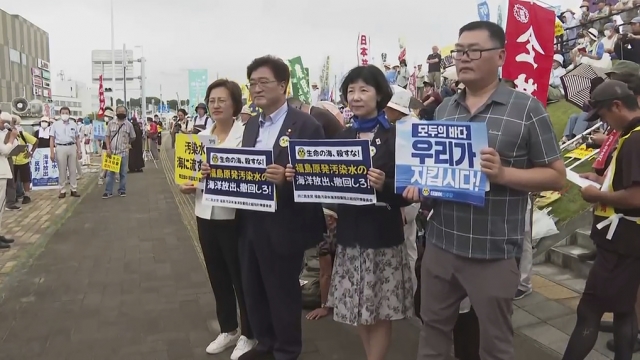The operator of Japan's Fukushima Daiichi nuclear power plant has initiated the release of treated radioactive water into the Pacific Ocean, more than a decade after a tsunami led to reactor meltdowns and contamination of the cooling water.
Now Tokyo is dealing with multiple challenges at home and abroad.
The decision, endorsed as safe by the International Atomic Energy Agency, has triggered protests in South Korea and China, which have been vehemently opposing this project since its conception ten months ago.
China's anti-discharge campaign has intensified over the past few months, and in response, Beijing imposed a ban on Japanese seafood. This move has significant implications for Japan's billion-dollar seafood industry, which heavily relies on exports.
To address a potential backlash, Japan has advised its citizens who are in China to maintain a low profile and avoid speaking Japanese loudly in public.
Over the weekend in Seoul, a multitude of South Koreans gathered in a rally to express their strong condemnation of the release, urging Japan to retain the treated water within storage tanks.
It's crucial to remember that the most affected by this decision are the coastal communities that were struck by the devastating tsunami 12 years ago. These communities lost loved ones and homes during that catastrophe, and they have spent the past few years rebuilding their lives.
Now, concerns about the safety of the ongoing project, which is expected to last for the next 30 years, are raising uncertainties. Tokyo Electric Power Company Holdings, the operator, intends to discharge 31,200 tons of treated water by the end of March 2024. This discharge would impact only 10 tanks out of a total of 1,000.
Despite assurances of the treated radioactive water's safety, the government and the plant's operator are essentially asking these communities, who have already endured so much, to continue bearing the consequences of this decision.
SEE MORE: Japan to release tons of radioactive wastewater into ocean Thursday
Trending stories at Scrippsnews.com




